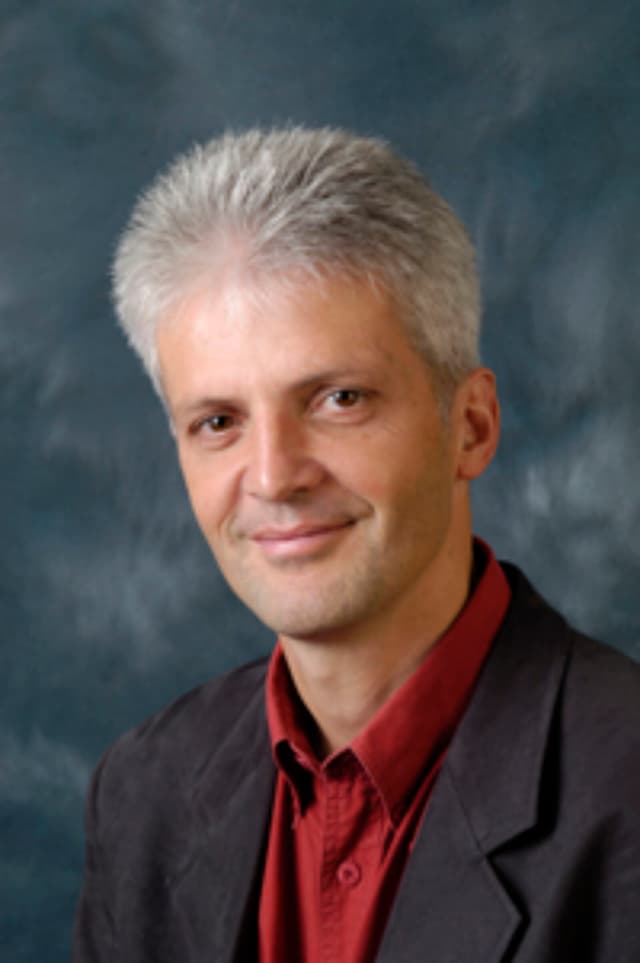New Director Assumes Helm of Institute; Opens Bionanoscience Department

(Originally published by the Delft University of Technology)
September 13, 2010
Cees Dekker becomes the new director of the Kavli Institute of Nanoscience at the Delft University of Technology on September 16, when the Insttute will also officially open a Department of Bionanoscience. The new department will focus on virtually unexplored scientific terrain: the interface between biology and nanoscience. Bionanoscience is expected to become one of the key scientific areas of the 21st century, with enormous implications for the medical field. Scientists anticipate new insights into how the living cell and DNA function as a result of this research.
“Biology is set to become an engineering science”, according to Prof. Cees Dekker. In addition to the next director of the Kavli Institute, he is also the chairman of the new Bionanoscience Department. “These days, nanotechnology’s tool box enables us to visualize, study and control biological molecules, such as DNA and proteins, highly accurately. This leads to new insights into the fundamental mechanisms of the living cell, knowledge which is indispensable in promising applications in, for example, medical treatments. As a consequence of its impact in the medical field, amongst others, bionanoscience is expected to become one of the key scientific areas of the 21st century."
“By means of this new department, TU Delft is greatly expanding its research in the direction of biology, and this is a significant development” Dekker continued. “We will be officially opening our state-of-the-art lab with innovative biofacilities on September 16. During the last year, we have grown from four leading scientists to ten, by engaging a number of international high potentials from various countries, ranging from South Korea to Harvard. And we intend to continue growing strongly in the coming years until we have created a team of more than twenty scientists. We are aiming for a lead position in Europe in the field of bionanoscience. I am tremendously pleased that TU Delft and the Kavli Foundation support our ambition.”
The bionano research carried out at Delft is highly diverse. It varies from the development of extremely sensitive instruments for investigating individual molecules (such as Prof. Serge Lemay’s single-ion devices) to the mapping of the precise action of cancer medicines in the cell (in Prof. Nynke Dekker’s work on topoisomerase protein, for example). This relatively new area often yields surprising research. For instance, Delft researchers Dr. Juan Keymer and Dekker use nanotechnology to fabricate mini ‘Galapagos Islands’, or landscapes on a chip, to study the adaptation and evolution of bacteria. Dekker explained: “The expansion in the new department comprises more biological research, super-resolution microscopy (in which revolutionary techniques are used to see cells ten times sharper), and synthetic biology (in which the researchers themselves intend to build biological components).”
The opening of the Bionanoscience Department also marks the taking of office of Prof. Cees Dekker as the director of TU Delft’s Kavli Institute of Nanoscience (where the majority of the university’s nano research takes place). Dekker succeeds Prof. Hans Mooij, who has been director since 2004. The new initiative means that, as of September 16, the Kavli Institute will have two departments: Bionanoscience and Quantum Nanoscience.
A symposium has been organized to celebrate the opening of the Bionanoscience Department. Various global authorities in this field have been invited to speak, one of whom is Prof. Stefan Hell of the Max Planck Institute in Göttingen. “In recent years, he has succeeded in greatly improving the resolution of microscopy images (to around 10 nanometer). I am confident that his achievements will unleash a revolution in biology”, said Dekker.
Other prominent speakers are Jeff Errington (Newcastle University) and Taekjip Ha (University of Illinois). Their respective specializations are bacterial research and single molecule biology. Dirk Jan van den Berg, chairman of TU Delft’s Executive Board, will conduct the official opening during lunch.

